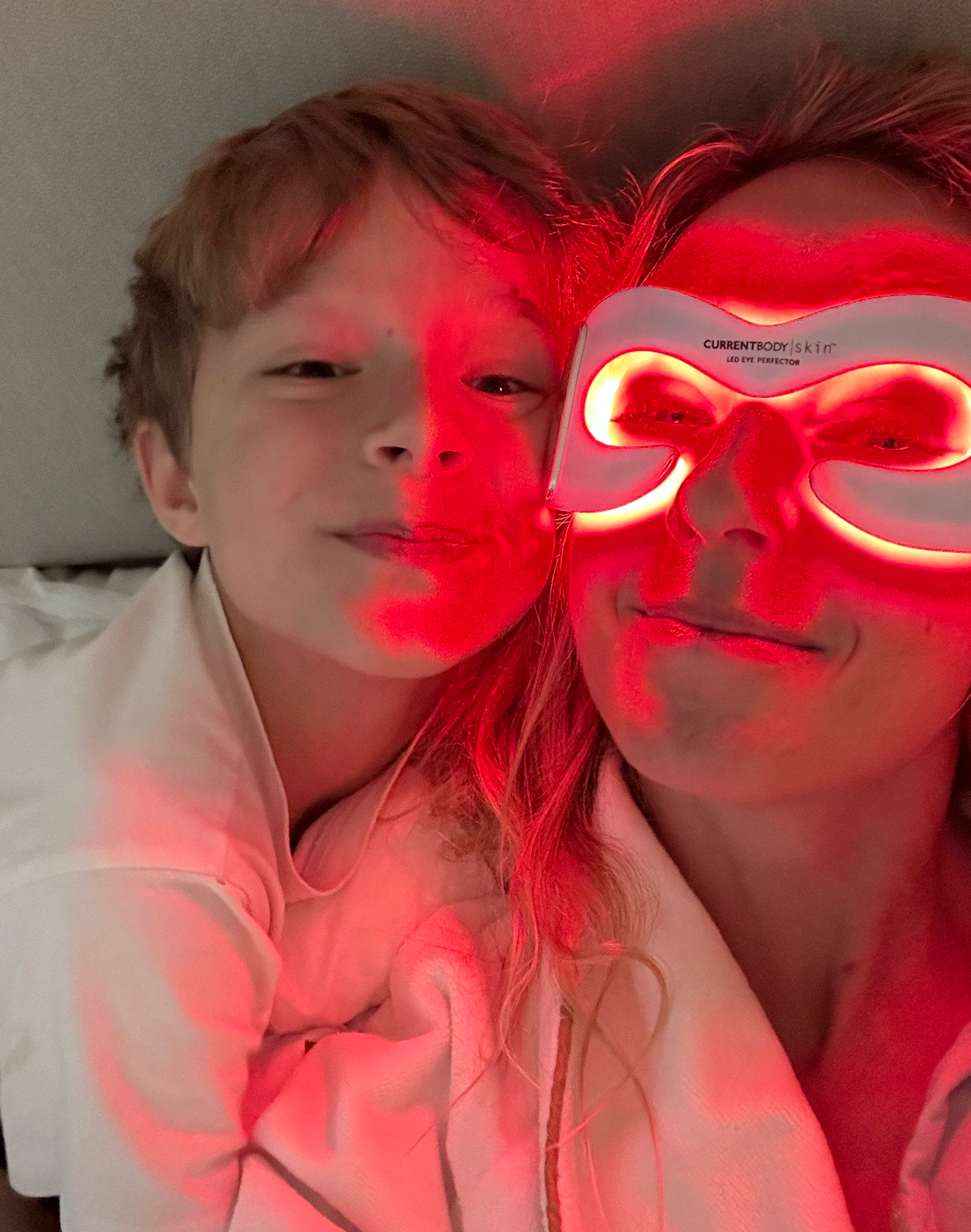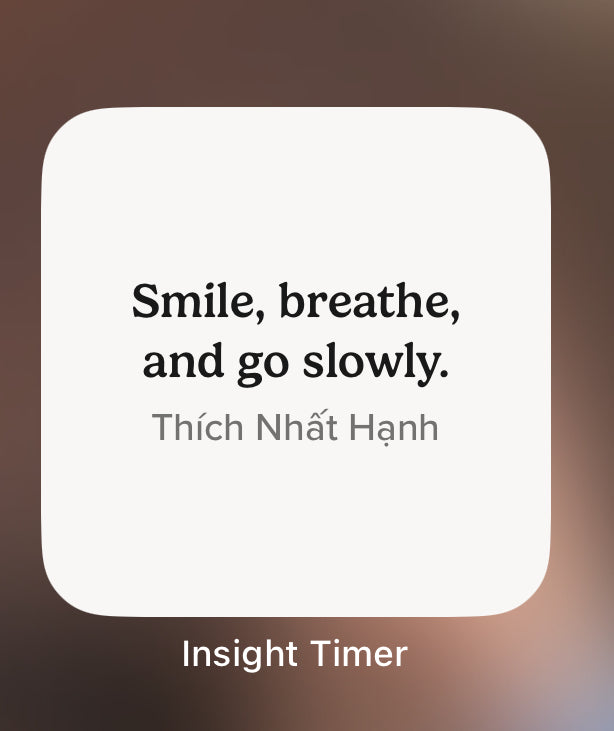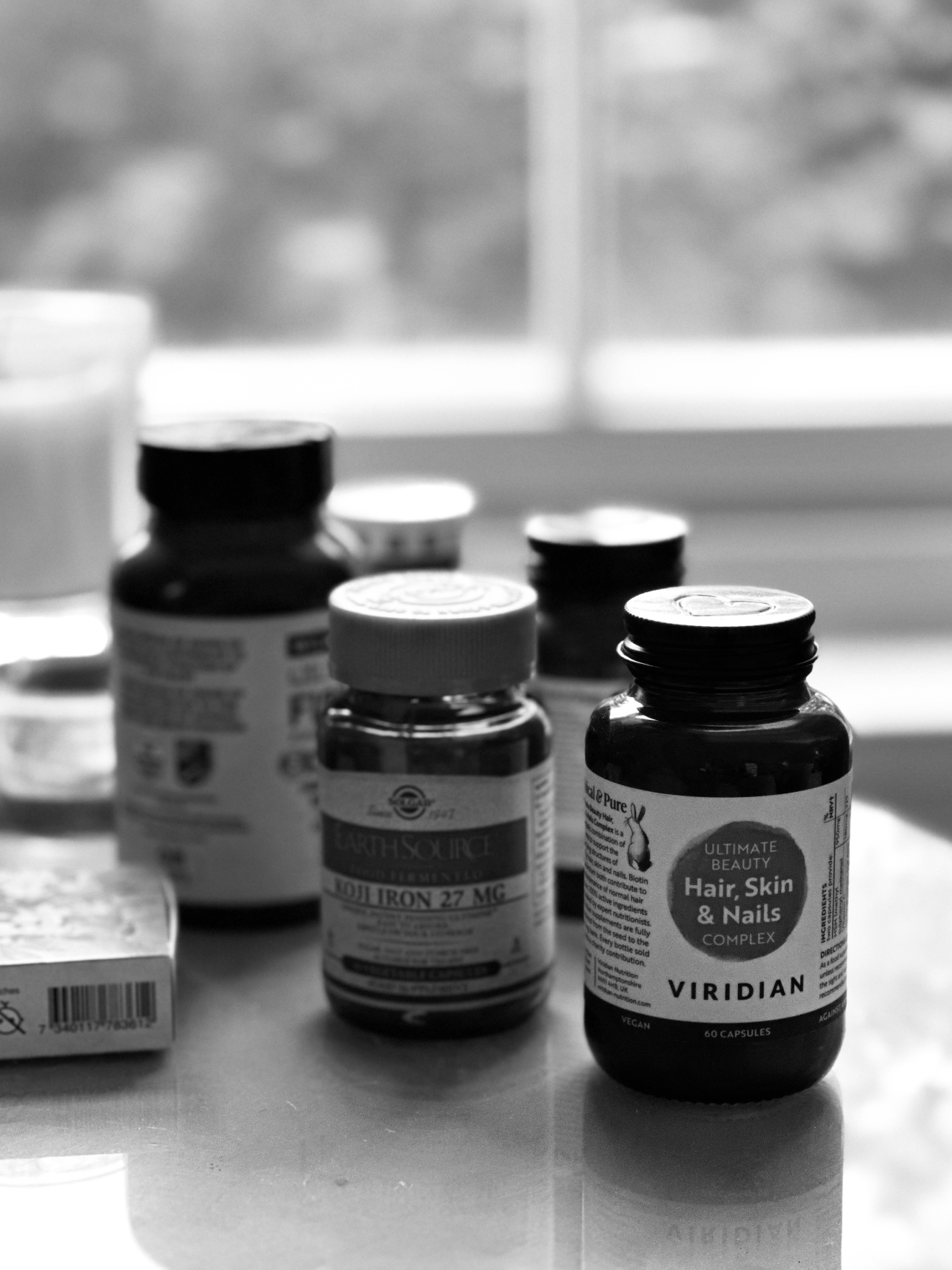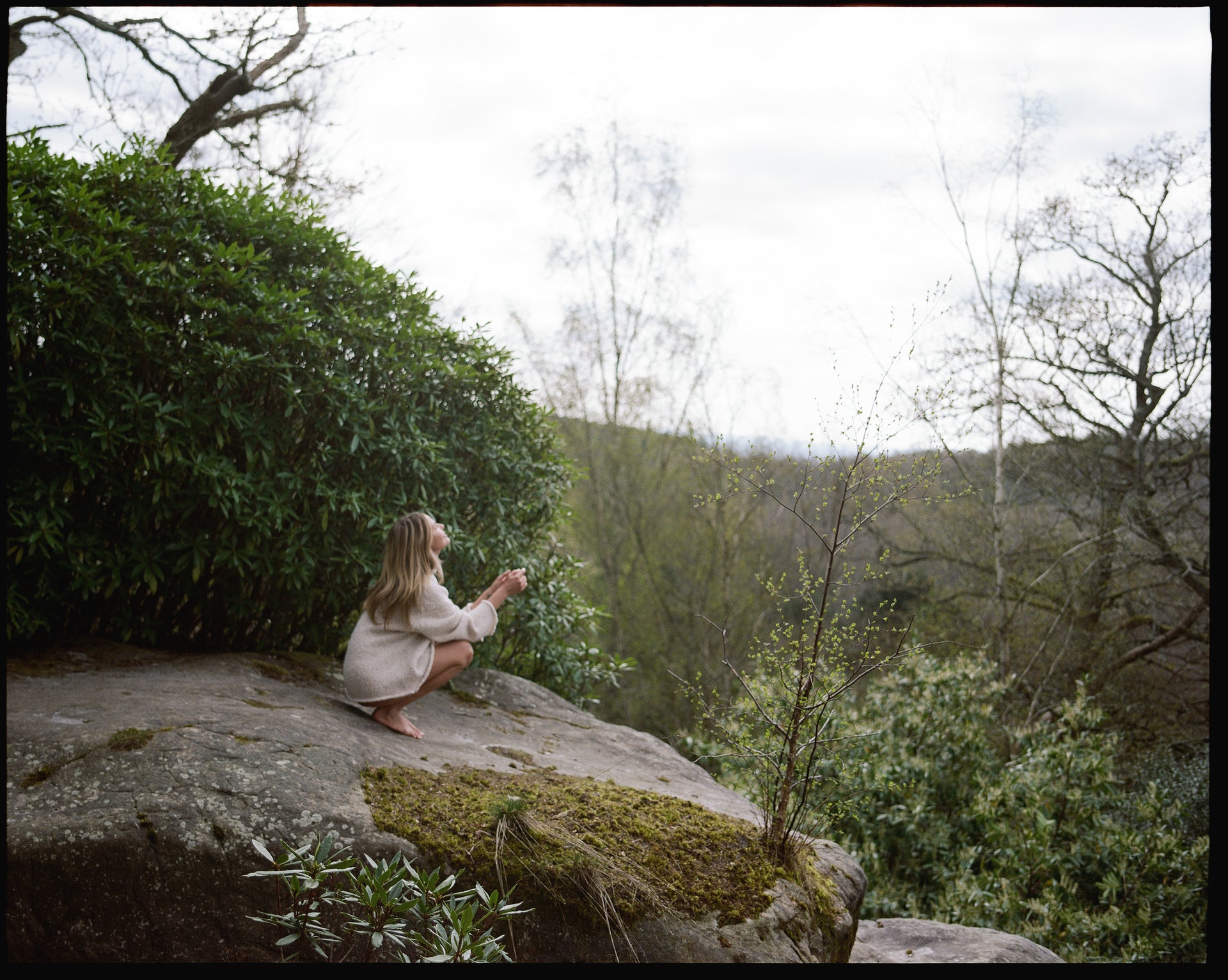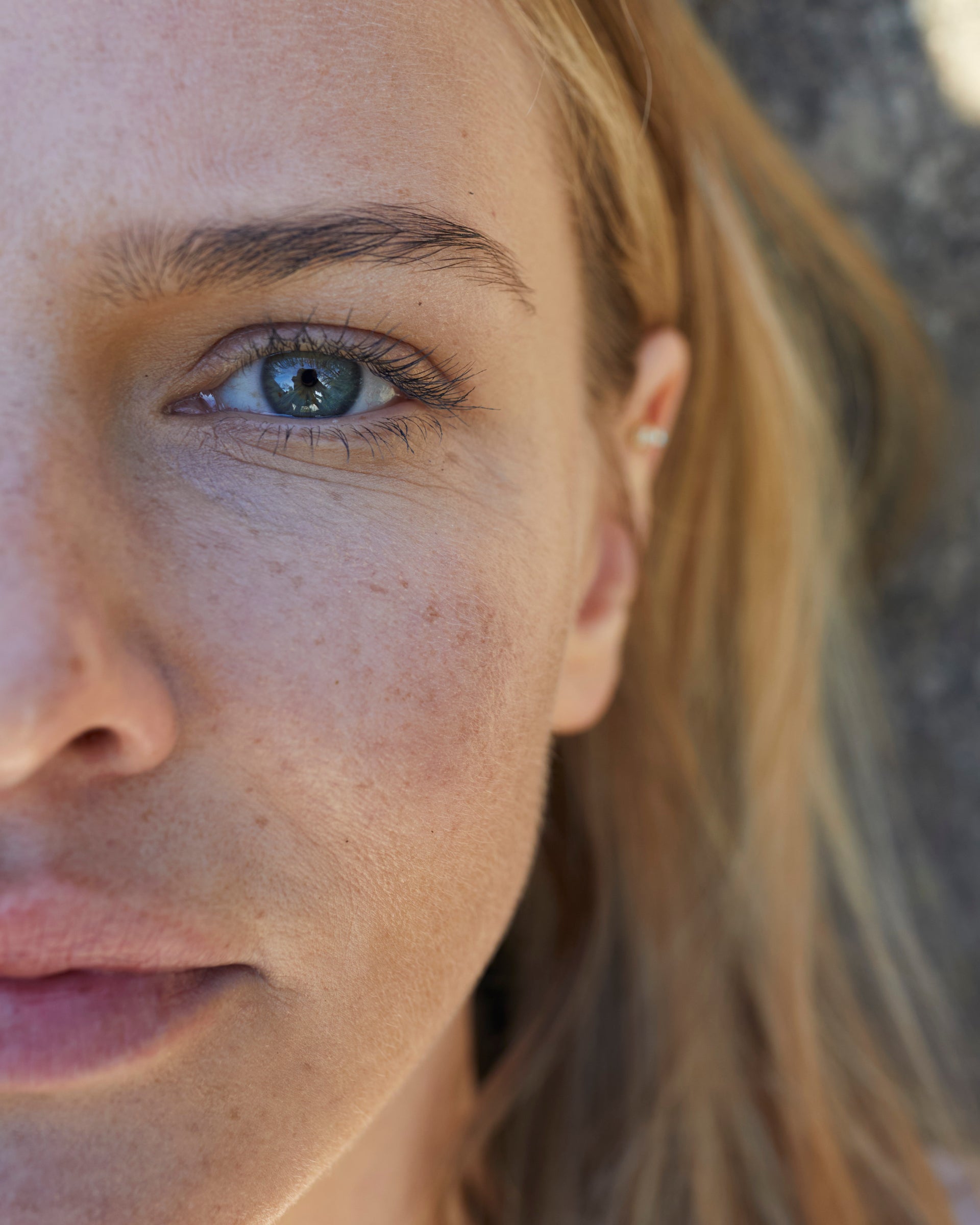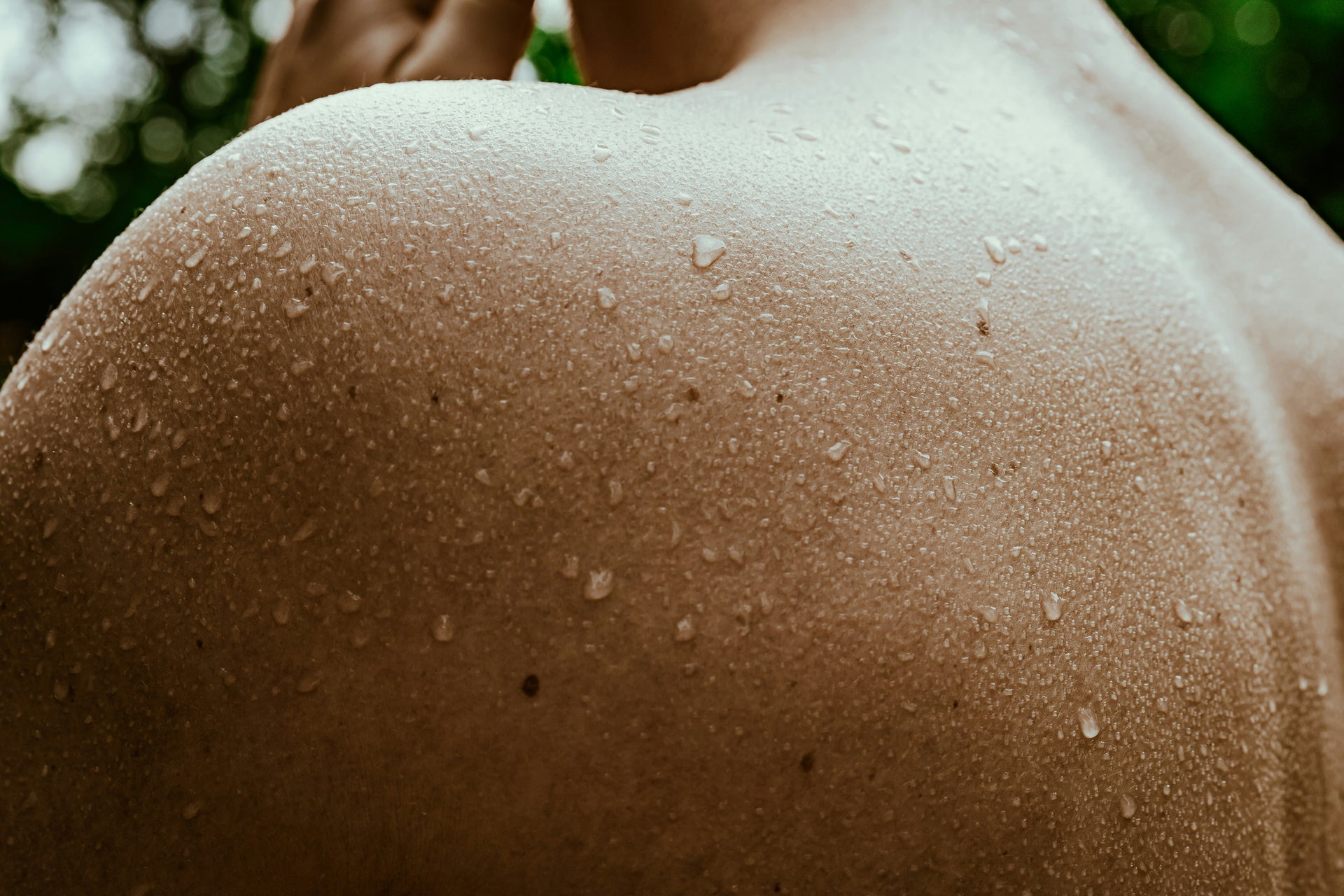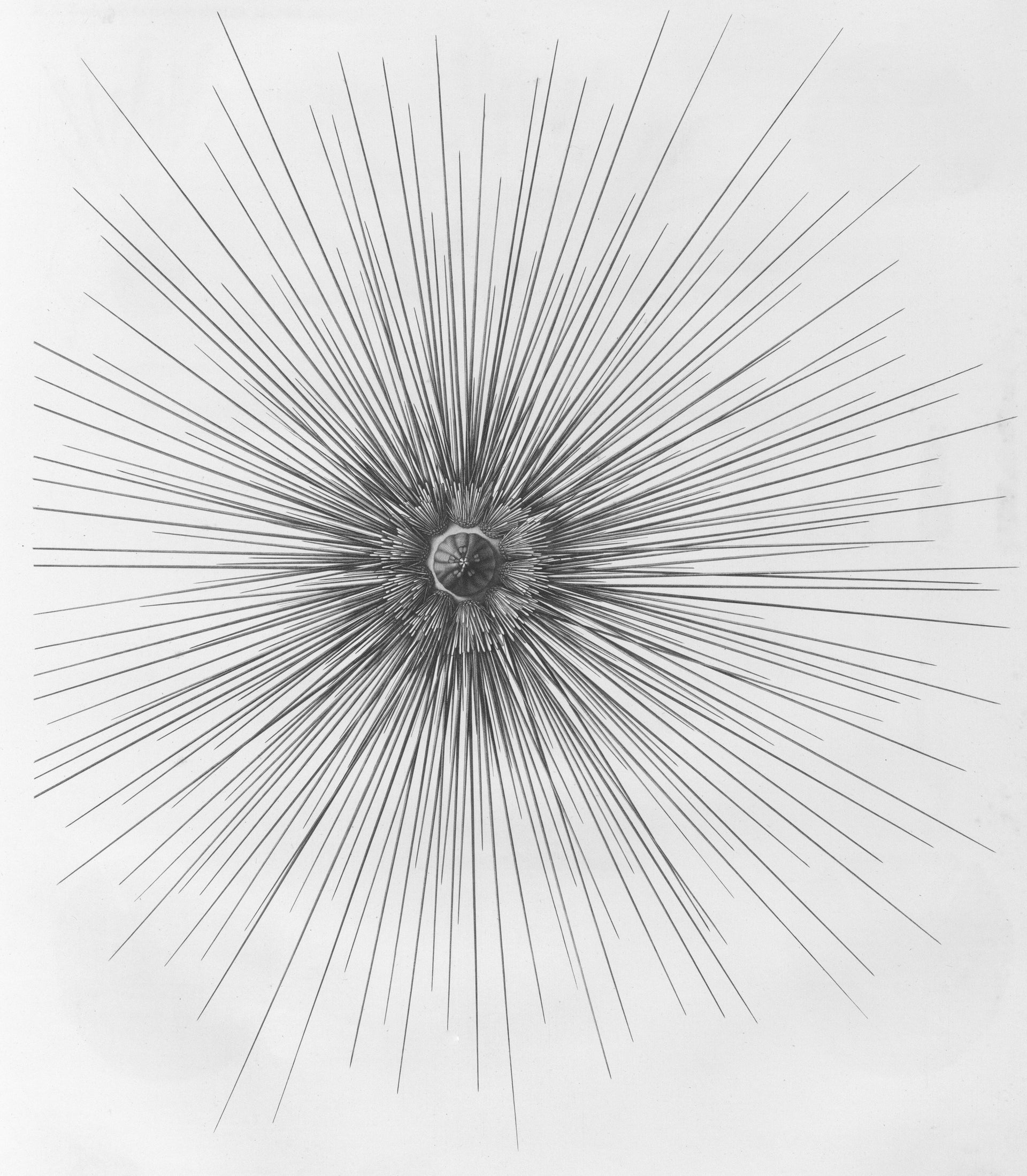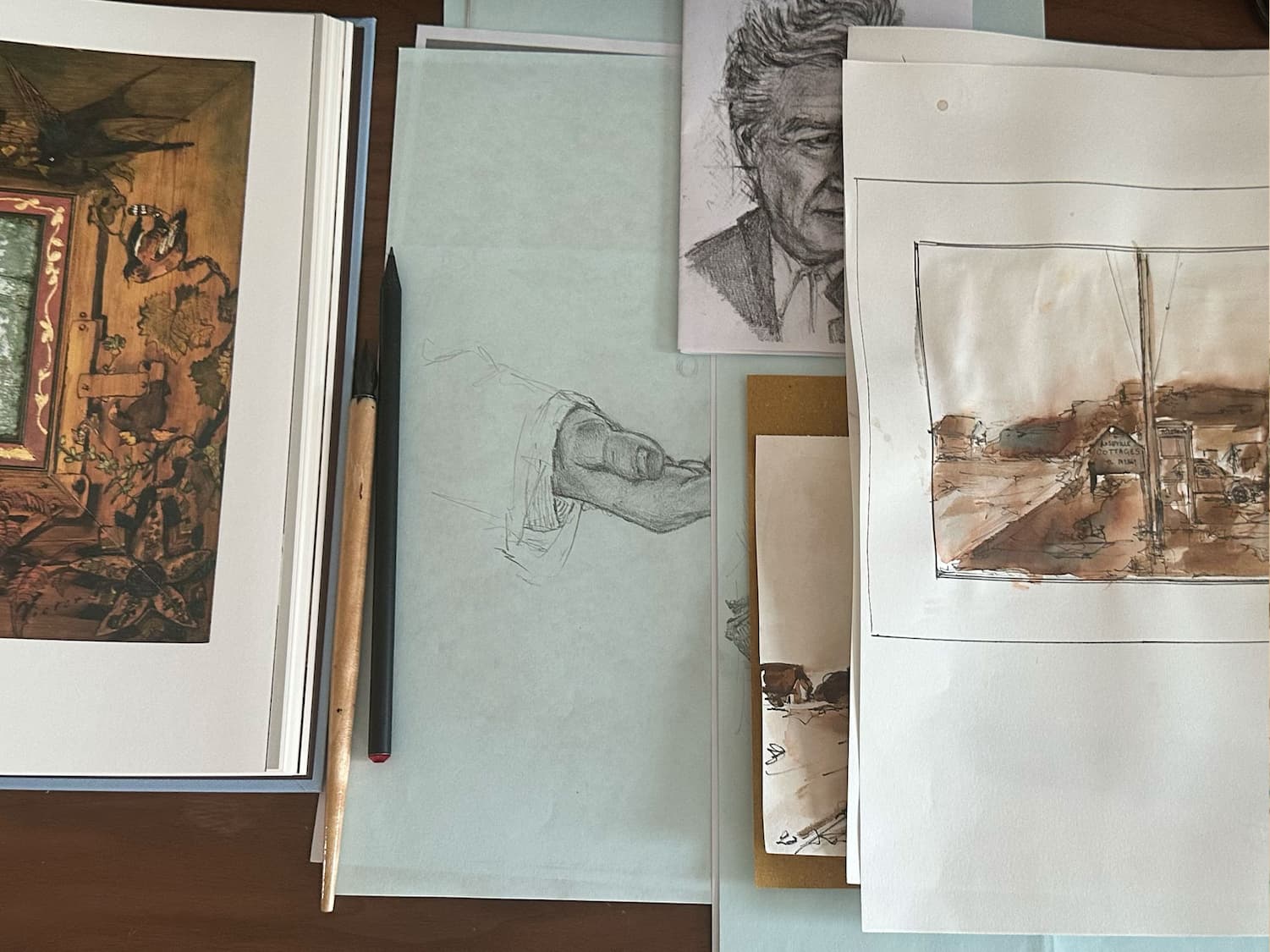From The Ground Up
The Journal
-
Issue 18
...read moreCold around the head can be surprisingly regulating. When you place an ice cap over your forehead, it activates the body’s natural calming mechanisms. Cooling this area helps quiet inflamed blood vessels, slow nerve signalling and dampen the over-firing pathways that often underlie headaches, migraines and sensory overwhelm.
Cold also stimulates the vagus nerve, which can shift you out of a dysregulated, high-alert state into a calmer physiological baseline. I find that during overwhelm or extreme tiredness, when I feel wiped out by exhaustion or suffering a terrible migraine, an ice cap for 5-10 minutes is a very soothing reset. They're about £15 on Amazon and one of the most useful things I've bought for instant relief.
-
Issue 17
...read moreMy acupuncturist suggested I start holding a kettlebell as I move through the day — just switching it between my hands while I do ordinary things, to keep my muscles engaged. It’s a simple shift, but it’s changing how I move; I feel more awake in my body, more connected to its weight and rhythm. Combined with cross-training, it’s helping me build strength that feels steady and necessary, now that I'm about to turn 40.
-
Issue 16
...read moreDuring the first stages of my Long Covid journey, back in 2021, my acupuncturist integrated moxibustion into my acupuncture sessions — and the results were astonishing.
The gentle heat of burning mugwort seeps deeply into the body; it is commonly used to melt tension and soften pain, but in my case, it literally extracted (the feeling was of something sharp and knife-like being pulled out) an acute pain I had had in my shoulder blade for weeks post virus. I have never had it since.
Now that my mind is floating among incense-filled rituals (and my body is aching from the kids' school slog) I shall book in for a series of treatments next week to hopefully rebalance my body and coax my energy back into flow.
-
Issue 15
...read moreRecently, I bought myself the CurrentBody red light eye mask — mostly because I’ve become such a convert to their red light helmet for hair, which has worked wonders for me. There’s something about red light therapy that my skin (and my mood) seems to love; it’s gentle, consistent and feels like it supports the skin rather than shocking it into submission.
An influencer once sat down with me for breakfast, after I'd spent the night nursing my son who was unwell, and the first thing she said to me was, “You should get fillers under your eyes.” Needless to say, sometimes it's okay (and kinder) not to “tell me everything”! The very notion of injecting under my eyes makes me wince, so, in true holistic spirit, I’m opting for patience and light to try to soothe the marks of three children. I’ve only just started using the mask, but it already feels restorative — a few quiet minutes in the morning to let everything soften before I begin my day.
-
Issue 14
...read moreI'm a rather impatient person and I constantly feel like I'm drowning in an hourglass, never enough time in the day for what I need to do, so meditation has always been a really tough one for me. Each time I’ve tried, I’ve loved the initial calm, but sooner or later the press of time pulls me away, long before I’ve found anything close to routine, let alone inner peace. Recently, though, I discovered the Insight Timer app and I’m completely sold. It’s designed for people exactly like me — too time-pressed to sit for hours, but deeply in need of the benefits. With thousands of guided meditations, talks, music and even simple breathing timers, you can choose practices that last anywhere from two minutes to an hour, fitting mindfulness into the smallest spaces of your day. I do a ten minute session every evening before bed and I really notice the difference. I also love that, if you install it on the homepage of your phone, it will pop up with a daily grounding quote each morning to help carry you through the day.
-
Issue 13
...read moreWhen I was struggling with Long Covid, I relied on a strict regimen of supplements, as if they could replete everything the virus had taken from me. Over time, I’ve learned to listen more instinctively, tuning in to what my body really needs at any given time.
When I feel on the edge of being run down, I’ll reach for a multivitamin (and on a hangover, nothing beats old-school Berocca). For energy dips, I take Koji Iron (27 mg); when PMS symptoms flare, I turn to ashwagandha and magnesium; and I try to consistently take Viridian Hair, Skin and Nails, because I genuinely notice the difference.
I think the most important part is not becoming a slave to what the labels promise — instead, it’s about listening a little closer to your body and giving it only what it truly asks for.
-
Issue 12
...read moreThe body has its own eclipses — times when, without much warning, energy dips or symptoms flare. In those moments it’s so easy to panic, to feel betrayed by our own body, to demand answers and fixes. But often what’s really happening is something much more subtle: the body, under invisible strain, is asking us to pause.
Managing not to fear a flare-up has been hugely healing for me. I've learned to soften my grip on control, simply rest when my body asks and to let things pass in their own time.
One of the most powerful mantras I learned from a brain-training programme I did still comes back to me in these moments:
“I am here in this now.”
It’s a reminder that I don’t need to be anywhere else — just here, in the present, letting the cycle unfold. Tomorrow is a new day.
-
Issue 11
...read moreSustaining ourselves over the long haul isn’t just about sheer endurance. It’s about finding something that gives us joy and returning to it, again and again. Doing something you're truly passionate about, and love, can heal us, even if only for a moment.
Actor James Van Der Beek, who is currently navigating cancer treatment, spoke recently about his childhood dream of singing on Broadway and how he sidelined it to strive, instead, for a "Matt Damon" career. Last week, he finally came full circle on that dream and said that while he was singing in the rehearsal room in New York, in the flow of creativity, his pain momentarily disappeared.
He asked: how many of us are still chasing goals set by our less wise selves? And how much lighter, happier, freer would we be if we let them go — if instead, we gave our time and energy to what has always lit us up, from before?
In a way, these passions are our personal rejectamenta: the scraps and fragments of dreams we thought were lost or discarded, but which, when picked up again, feel life-giving. So, I think the long haul isn’t about clinging to rigid goals. It’s about sifting through what remains, salvaging what still sparks joy, and letting that creativity sustain us.
-
Issue 10
...read moreThe path to long-term health is rarely all one thing. The daily habits that support a long life — rest, movement, sunlight, nourishment — are built over years, sometimes decades. We take joy in each act of care, but the sting is knowing that these acts are never done; they are a lifelong tending. Like the maerl reef, longevity grows in millimetres, not metres, and can be undone quickly if neglected. This is a particularly painful pattern for those struggling with chronic illnesses and recovery, where the line between improvement and overdoing-it is very fine. This week, as I struggle with jet lag and the onset of some of my chronic pain, I will deliberately take my foot off the pedal and, as far as I am able to, will make small, protective choices (earlier bedtime—whoops, not tonight— long walks, morning sunlight…) to get myself back to pre-flying fitness.
-
Issue 09
...read moreFor most of my life, sweating felt incidental — something that happened during exercise, or on a hot day. I never gave it much thought. But after living with Long Covid, I came to realise how precious it is. And how essential!
When my body stopped functioning the way it used to, even the ability to sweat disappeared. It was as if my internal systems had stalled, and with them, the sense of vitality that comes from a body in flow. So when sweating finally returned (after daily infrared sauna for about four weeks), it felt miraculous. Life-affirming, even.
Sweat is one of the body’s most powerful cleansing tools. It’s how we release heavy metals, mold toxins and chemical buildup. It supports the lymphatic system, regulates temperature and connects us to our animal instincts — to the primal intelligence of the body doing exactly what it was designed to do.
If you're not fortunate enough to be sweating it out on a beautiful beach somewhere this summer, opt for gentle movement in the sun, warm baths with magnesium salts, a sauna, or simply taking time to recalibrate so that your system gets the rest it needs to keep this detox pathway open.
-
Issue 08
...read moreSo much of the wellness space today, especially biohacking, is framed around the self. It’s often solitary, data-driven and precision-obsessed, but lately, I’ve been curious about what happens when we shift the lens from me to we.
I went to a group Gravity workshop recently, led by acupuncturist Toby Stephens, and it completely reframed my relationship with both the earth and other people. We weren’t doing much — standing, sensing, breathing — but at one point, I stood in the centre of a circle of strangers and felt something shift. There was no physical contact, yet the field around me felt thick, charged and emotional. A kind of collective touch. It caught me off guard.
It reminded me that we’re constantly exchanging energy, even in stillness, and that healing, especially for the long haul, might not always come from another supplement or another metric. Sometimes it comes from being in a room with others, attuning to the invisible web between us.
Maybe the future of longevity isn’t about going further alone, but deeper together.
-
Issue 07
...read moreOne lingering part of Long Covid I still haven’t managed to resolve is post-exertional malaise, or PEM. It’s something many people with chronic conditions like ME/CFS, fibromyalgia, or Lyme disease will recognise instantly. You can feel completely fine, go about your day as usual, and then suddenly hit a wall — overwhelmed by a wave of physical and mental exhaustion so intense, you have no choice but to lie down.
For a long time, I assumed exercise was the trigger. I thought I was setting myself back by trying to build strength. But after tracking my patterns with my Oura ring, I realised something unexpected: the crashes weren’t coming after workouts, but often after long, gentle, enjoyable social engagements. The fallout sometimes lasts into the next day, or the one after that.
It’s hard to describe to anyone who hasn’t felt it, but I imagine even the healthiest among us experience something similar from time to time — burnout, maybe. That feeling of being emptied out by too much doing, even when the “doing” felt good.
What I’ve found helps most in those moments — when even reading feels like an effort — is spending small pockets of time being creative. I'll sketch things I want to remember (I have a terrible short-term memory), write, map out future Vanderohe formulas. Nothing pressured, nothing polished; just simple acts of making. Over time, these scraps begin to add up. Instead of looking back at empty hours, I’m left with a kind of scrapbook of memories and meaningful moments, built during the pause.




